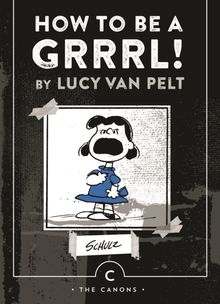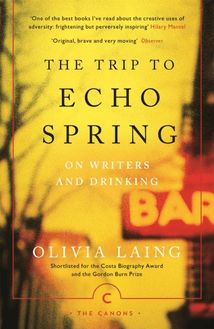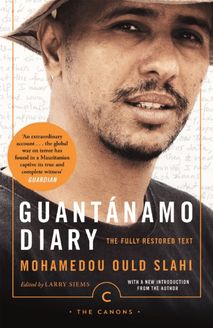Looking In the Distance , livre ebook
93
pages
English
Ebooks
2009
Vous pourrez modifier la taille du texte de cet ouvrage
Obtenez un accès à la bibliothèque pour le consulter en ligne En savoir plus
Découvre YouScribe en t'inscrivant gratuitement
Découvre YouScribe en t'inscrivant gratuitement
93
pages
English
Ebooks
2009
Vous pourrez modifier la taille du texte de cet ouvrage
Obtenez un accès à la bibliothèque pour le consulter en ligne En savoir plus
Publié par
Date de parution
25 septembre 2009
Nombre de lectures
1
EAN13
9781847677808
Langue
English
Publié par
Date de parution
25 septembre 2009
Nombre de lectures
1
EAN13
9781847677808
Langue
English
Richard Holloway was Bishop of Edinburgh and Primus of the Scottish Episcopal Church. A former Gresham Professor of Divinity and Chairman of the Joint Board of the Scottish Arts Council and Scottish Screen, he is a fellow of the Royal Society of Edinburgh. Leaving Alexandria won the PEN/Ackerley Prize and was shortlisted for the Orwell Prize. Holloway has written for many newspapers in Britain, including the Times, Guardian, Observer, Herald and Scotsman . He has also presented many series for the BBC television and radio; his latest book, Waiting for the Last Bus , originated as a five-part series on Radio 4 in 2016.
Also by Richard Holloway
Let God Arise (1972) New Vision of Glory (1974) A New Heaven (1979) Beyond Belief (1981) Signs of Glory (1982) The Killing (1984) The Anglican Tradition (ed.) (1984) Paradoxes of Christian Faith and Life (1984) The Sidelong Glance (1985) The Way of the Cross (1986) Seven to Flee, Seven to Follow (1986) Crossfire: Faith and Doubt in an Age of Certainty (1988) The Divine Risk (ed.) (1990) Another Country, Another King (1991) Who Needs Feminism? (ed.) (1991) Anger, Sex, Doubt and Death (1992) The Stranger in the Wings (1994) Churches and How to Survive Them (1994) Behold Your King (1995) Limping Towards the Sunrise (1996) Dancing on the Edge (1997) Godless Morality: Keeping Religion Out of Ethics (1999) Doubts and Loves: What Is Left of Christianity (2001) On Forgiveness: How Can We Forgive the Unforgiveable? (2002) How to Read the Bible (2006) Between the Monster and the Saint: Reflections on the Human Condition (2008) Leaving Alexandria: A Memoir of Faith and Doubt (2012) A Little History of Religion (2016) Waiting for the Last Bus: Reflections on Life and Death (2018)
This Canons edition published in Great Britain, the USA and Canada in 2019 by Canongate Books
This digital edition first published in 2009 by Canongate Books
First published in Great Britain in 2004 by Canongate Books Ltd, 14 High Street, Edinburgh EH1 1TE
canongate.co.uk
Copyright © Richard Holloway, 2004 Afterword © Richard Holloway, 2019 The moral right of the author has been asserted
Permissions are recorded on pp. 124
British Library Cataloguing- in-Publication Data A catalogue record for this book is available on request from the British Library
ISBN 978 1 78689 393 2 eISBN 978 1 84767 780 8
For Jeannie
Constant companion on the journey
Contents
Acknowledgements
Preface
I: Looking
II: Speaking
III: Listening
IV: Leaving
Afterword
Notes
Select bibliography
Acknowledgements
Whenever I have quoted from Scripture in this book I have used the King James Bible, sometimes called the Authorised Version, though Adam Nicolson tells me it never was authorised. Anyway, after a lifetime of modern translations of the Bible, I have gone back to the King James, for two reasons. There are many Christians who claim to believe that the Bible is a contemporary or living text, a sort of running Web Page from God. I never really believed that, even when I thought I did, but I certainly don’t believe it now; which is why I have used a text that makes no bones about being an obviously archaic document. We are talking about the olden days here, and I think the King James makes that point obviously and without argument. But the other reason is just as important. I continue to think that the Bible, like many ancient myths, goes on bringing great wisdom to the human community, and great beauty as well. I think the splendour of the King James Bible helps to carry both of those truths.
I would also like to acknowledge my gratitude to Jamie Byng, my enthusiastic publisher, and to Mairi Sutherland, my consistently helpful editor, for all their suggestions. My warm thanks are also due to Ruth Scott for lots of good advice during the crafting of this text; and to Amy Purden for suggesting the Hafiz poem to me that seems to sum up so much of what the book is about.
RICHARD HOLLOWAY EDINBURGH, 2004
Preface
Negative Capability: that is when man is capable of being in uncertainties, Mysteries, doubts, without any irritable reaching after fact and reason.
Letter of John Keats to George and
Tom Keats (No.45)
In 1999 I wrote a book called Godless Morality: Keeping Religion out of Ethics . As the title suggests, the book had two aims. I set out to argue against the claim that, without religion, people would soon give up on ethics; that without God there could be no human goodness. And I sketched an outline of what a purely secular or godless ethic would look like. I tried to find good human responses to a number of contemporary ethical challenges. The book was well reviewed in most of the secular newspapers and criticised by most of the religious press. It was praised by some philosophers and attacked by the then Archbishop of Canterbury, George Carey.
This new book is a companion volume. It attempts to do for human spirituality what Godless Morality tried to do for ethics. Spirituality is a notoriously difficult word to define. The word covers the inner life of human beings, all that is left when you have fed and sheltered them, and that’s just about everything that is important to them. Spirituality, like morality, has been the traditional preserve of religion. Indeed, it has a whole subsection of theology to itself, covering subjects such as prayer, silence and self-discipline. But for many people today religion is no longer a way of life that is possible for them. They may or may not ‘believe’ in God, but they are no longer comfortable in any of the traditional religions. This enormous group of people has been described as ‘the Church alumni association’ or ‘the Church in exile’. However, there is something faintly patronising in those descriptions. For many people in our secular society, religion has never held any attraction for them. They have not left the Church for the simple reason that they were never in it. And they do not cease to be interested in spirituality or the inner life of the human community just because they are not members of any of the religions on offer in our society. They are fascinated by the human passion for trying to understand the universe; and they admire the way science tries to look unflinchingly at the reality of things. They revel in the richness of human art and, through its various forms, they experience moments of grace and transcendence. They are increasingly fascinated by the complexities of the human psyche as revealed by the psychological study of human nature; and they are aware of the long human search for wholeness and healing. In short, there is a rich and diverse range of human spiritualities in the world, and countless people follow them without reference to religion or any necessary sense of God. I have written this book for that great company, because I now find myself within it.
The book is in four movements. The first three loosely cover some of the philosophical, psychological and ethical elements of human spirituality. The fourth is about endings, the ending of traditions and the ending of human life itself in death. Reading it over, I can see that this is a very personal book. For better or for worse, it is one man’s account of what he has seen after a lifetime spent looking in the distance.
I
LOOKING
1
STILL LOOKING
All religions will pass, but this will remain: simply sitting in a chair and looking in the distance. VASILII ROZANOV
For years I have been haunted by that aphorism from Vasilii Rozanov. Indeed, I could claim to have lived its meaning in my own life. I was drawn into religion as a small boy from the back streets of an industrial town in the west of Scotland. The religion I encountered there was of the high romantic variety, heavy with incense and laden with mystery. I had no clear sense about what it meant except that it suggested heroic adventure, an endless quest after an object flying from desire. Years later I recognised myself in A.S.J. Tessimond’s poem ‘Portrait of a Romantic’:
He is in love with the land that is always over The next hill and the next, with the bird that is never Caught, with the room beyond the looking glass. He likes the half-hid, the half-heard, the half-lit, The man in the fog, the road without an ending, Stray pieces of torn words to piece together. He is well aware that man is always lonely, Listening for an echo of his cry, crying for the moon, Making the moon his mirror, weeping in the night. He often dives in the deep-sea undertow Of the dark and dreaming mind. He turns at corners, Twists on his heel to trap his following shadow. He is haunted by the face behind the face. He searches for last frontiers and lost doors. He tries to climb the wall around the world. 1
I gave my life to that search. I became a priest, then a bishop, then a primate. Now, forty years and many battles later, it has passed and I am left sitting in the chair looking in the distance.
What remains is the innate compulsion to go on asking the unanswerable question of life’s meaning. And it is the fact of its unanswerability that makes the question so compelling. We find ourselves as conscious beings in an apparently unconscious universe and wonder what it means. We know quite a lot about how we came about, but there is no satisfactory explanation as to why we came about. I know, of course, that many confident explanations have been given to the question Why? The shorthand term for one of these explanatory systems is ‘a religion’, complete with indefinite article, though the really confident ones always claim the most definite of definite articles for themselves: theirs is the Religion, the really true set of answers to life’s questions. Many people find one or other of these answer systems satisfactory. They don’t like living uncertain lives with the big question permanently unanswered, so they go for closure by opting into one of the religions. Then they can get on with building up t













